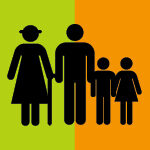12.05.2022 , in ((Europe on the Brink))
, ((No Comments))
James F. Hollifield
 As Russia’s invasion of Ukraine has led to the largest migrations in Europe since the Second World War, James F. Hollifield comments on the European Union’s policy response to this exodus. He calls for a legal and orderly movement of people, highlighting the involved governments’ responsibility in developing and implementing
...
As Russia’s invasion of Ukraine has led to the largest migrations in Europe since the Second World War, James F. Hollifield comments on the European Union’s policy response to this exodus. He calls for a legal and orderly movement of people, highlighting the involved governments’ responsibility in developing and implementing
...
+ Read more
21.04.2022 , in ((Transnational Ageing))
, ((No Comments))
Liliana Azevedo and Livia Tomás
 La mobilité résidentielle des retraité·e·s n’est pas un phénomène nouveau. Libérées des contraintes liées à l’emploi, il n’est pas rare que les personnes de plus de 60 ans choisissent de s’établir ailleurs, dans leur pays de résidence ou à l’étranger, de façon permanente ou périodique. Une pluralité de facteurs intervient
...
La mobilité résidentielle des retraité·e·s n’est pas un phénomène nouveau. Libérées des contraintes liées à l’emploi, il n’est pas rare que les personnes de plus de 60 ans choisissent de s’établir ailleurs, dans leur pays de résidence ou à l’étranger, de façon permanente ou périodique. Une pluralité de facteurs intervient
...
+ Read more
12.04.2022 , in ((Transnational Ageing))
, ((No Comments))
Mihaela Nedelcu and Malika Wyss
 Grandparenting across borders represents a form of transnational ageing that increasingly concerns seniors regardless of whether or not they have a migration background or previous international mobility experiences. Based on insights from the nccr-on the move’s “Transnational Ageing” study, this blog post highlights the extent of transnational grandparenting practices among
...
Grandparenting across borders represents a form of transnational ageing that increasingly concerns seniors regardless of whether or not they have a migration background or previous international mobility experiences. Based on insights from the nccr-on the move’s “Transnational Ageing” study, this blog post highlights the extent of transnational grandparenting practices among
...
+ Read more
15.12.2021 , in ((Family + Mobility))
, ((No Comments))
Roxane Gerber
 The decision to be mobile deeply influences one’s life trajectory. Moreover, family and social networks affect and are conversely affected by one’s decision to live abroad. Our blog series on Families + Mobilities has highlighted the plurality of families, nudging us to look beyond the concept of a nuclear family
...
The decision to be mobile deeply influences one’s life trajectory. Moreover, family and social networks affect and are conversely affected by one’s decision to live abroad. Our blog series on Families + Mobilities has highlighted the plurality of families, nudging us to look beyond the concept of a nuclear family
...
+ Read more
09.12.2021 , in ((Family + Mobility))
, ((No Comments))
Livia Tomás and Liliana Azevedo
 Retirement is a key moment in the life course, and for many people, it is a time to think about relocation. Two ongoing qualitative research projects study the (im)mobility patterns of retirees, who moved to Portugal and Spain at the end of their working lives in Switzerland. In this post,
...
Retirement is a key moment in the life course, and for many people, it is a time to think about relocation. Two ongoing qualitative research projects study the (im)mobility patterns of retirees, who moved to Portugal and Spain at the end of their working lives in Switzerland. In this post,
...
+ Read more
![]() As Russia’s invasion of Ukraine has led to the largest migrations in Europe since the Second World War, James F. Hollifield comments on the European Union’s policy response to this exodus. He calls for a legal and orderly movement of people, highlighting the involved governments’ responsibility in developing and implementing
...
As Russia’s invasion of Ukraine has led to the largest migrations in Europe since the Second World War, James F. Hollifield comments on the European Union’s policy response to this exodus. He calls for a legal and orderly movement of people, highlighting the involved governments’ responsibility in developing and implementing
...


 The decision to be mobile deeply influences one’s life trajectory. Moreover, family and social networks affect and are conversely affected by one’s decision to live abroad. Our blog series on Families + Mobilities has highlighted the plurality of families, nudging us to look beyond the concept of a nuclear family
...
The decision to be mobile deeply influences one’s life trajectory. Moreover, family and social networks affect and are conversely affected by one’s decision to live abroad. Our blog series on Families + Mobilities has highlighted the plurality of families, nudging us to look beyond the concept of a nuclear family
...